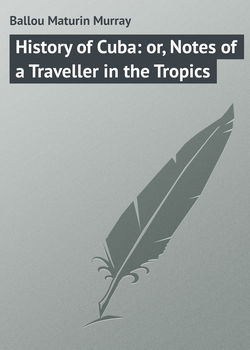
000
ОтложитьЧитал
If Cuba come into our possession peaceably, as the fruits of a fair bargain, or as a free-will offering of her sons, after a successful revolution, we can predict for her a future as bright as her past has been desolate and gloomy; for the union of a territory with a foreign population to our confederacy is no new and doubtful experiment. Louisiana, with her French and Spanish Creoles, is one of the most reliable states of the Union; and, not long after her admission, she signed, with her best blood, the pledge of fealty to the common country.
More recently, we all remember how, when Taylor, in the presence of the foe upon the Rio Grande, called for volunteers, the gallant Creoles rushed to arms, and crowded to his banner. The Creoles of Cuba are of the same blood and lineage, – Spaniards in chivalry of soul, without the ferocity and fanaticism of the descendants of the Cid. We are sure, from what they have shown in the past, that liberal institutions will develop latent qualities which need only free air for their expansion. They will not want companions, friends and helpers. A tide of emigration from the States will pour into the island, the waste lands will be reclaimed, and their hidden wealth disclosed; a new system of agricultural economy will be introduced; the woods of the island will furnish material for splendid ships; towns and villages will rise with magical celerity, and the whole surface of the "garden of the world" will blossom like the rose.
"Rich in soil, salubrious in climate, varied in productions, the home of commerce," says the Hon. O.R. Singleton, of Mississippi, "Cuba seems to have been formed to become 'the very button on Fortune's cap.' Washed by the Gulf-stream on half her borders, with the Mississippi pouring out its rich treasures on one side, and the Amazon, destined to become a 'cornucopia,' on the other, – with the ports of Havana and Matanzas on the north, and the Isle of Pines and St. Jago de Cuba on the south, Nature has written upon her, in legible characters, a destiny far above that of a subjugated province of a rotten European dynasty. Her home is in the bosom of the North American confederacy. Like a lost Pleiad, she may wander on for a few months or years in lawless, chaotic confusion; but, ultimately, the laws of nature and of nations will vindicate themselves, and she will assume her true social and political condition, despite the diplomacy of statesmen, the trickery of knaves, or the frowns of tyrants. Cuba will be free. The spirit is abroad among her people; and, although they dare not give utterance to their thoughts, lest some treacherous breeze should bear them to a tyrant's ears, still they think and feel, and will act when the proper time shall arrive. The few who have dared 'to do or die' have fallen, and their blood still marks the spot where they fell. Such has been the case in all great revolutionary struggles. Those who lead the van must expect a sharp encounter before they break through the serried hosts of tyranny, and many a good man falls upon the threshold of the temple.
"'But freedom's battle once begun,
Bequeathed from bleeding sire to son,
Though baffled oft, is always won.'"



